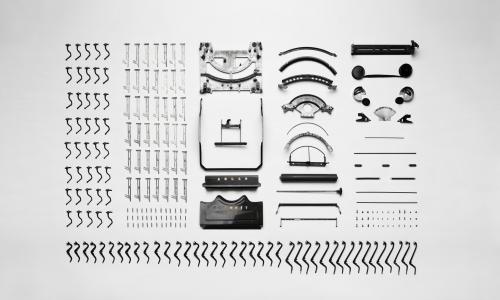
When advertising a job, employers can receive upwards of over a hundred applications. That is over one hundred cover letters and one hundred resumes. Though they may like to, it is not practical for the employer to spend days at a time meticulously reading all documents.
In reality, each package may receive only thirty seconds during the first look-though.
If you do not quickly present yourself as "special," your application might find itself in the shredder pile. Some employers are ruthless while shortlisting.
Start With a Bang!
Put yourself in the shoes of the employer. Would you be impressed if every candidate started their resume with, "I am a [insert year] student at Simon Fraser University and I am applying for the job of [insert job title]? I believe I am the best candidate because…"?
Imagine reading a hundred of those. It might get a little dry.
In your opening sequence surprise the employer. Wake them up with a quick, witty statement or another interesting fact. Give them no choice but to read the entire page.
It Must Be Strong Throughout
In a cover letter, there are no wasted words. Everything has a purpose and you must write to impress. Keep your writing clear, concise and enthusiastic.
While there are no formal guidelines, a three-section approach works well. Here are a few tips of what you want and don't want to include:
Part 1: Explain what you have to offer. What can you do for the employer? Find a common ground between you and the company and describe how you fit in. Stay away from focusing too much on what the employer can do for you. You want to work for them, remember? Also, be sure to highlight any research you've done and make clear your interest in the position.
Part 2: Give examples of your previous experience that provide proof of your skills and ability to successfully meet the employer's needs. Pick the top two or three required duties or skills from the job description and focus on them. Make sure to use the STAR formula (Situation, Task, Action, Result), explaining each aspect of the examples your profile.
Part 3: End your cover letter by reiterating your interest in the position and why you are the best candidate. Don't forget to ask for an interview and/or make clear your next course of action. (Note: co-op students don't usually follow up after their cover letters.)
Let Your Personality Shine
Communicating your skills is only one part of a cover letter -- how you express yourself and the impression you make is just as important. Don't be afraid to be yourself and offer the employer something unique.
You can't expect to stand out in the crowd if your cover letter follows the same template as the rest of the stack the employer has just read! Be sure to use discretion though, and stay within acceptable boundaries. All employers are different.
Pay Attention to the Job Description
Another way to separate yourself from the other applicants is to pay close attention to the job description. A job description tells a lot about the job: required skills, position's duties, organization's corporate culture, and other important notes.
A great cover letter is tailored specifically for the position from beginning to end, always thinking about the employer's needs and your ability to meet them.
Edit, Proof It, and Please Double-Check It!
Employers get it all the time: cover letters addressed to the wrong person, ones with spelling mistakes, bad grammar, or a cover letter that isn't signed.
Following through on all these won't win you any praise, but without double-checking your document you might as well forget applying and put your cover letter in the recycling bin yourself.
Three Myths of Cover Letters
-
"Writing a perfect cover letter will guarantee me the job."
The "perfect" cover letter does not exist. Employers each have their own idea of what they consider spectacular. The cover letter is also only one facet of applying for a new job: your resume, portfolio, interview and other forms of communication are as important. - "The candidate with the best experience, skills and education will always get the job."
There is a lot more to being the best candidate than just being the most experienced. Compatibility with the company and future co-workers is integral. Your personality and the way you carry yourself plays a big role in the employer's decision.
Even if you do not have all the desired qualifications, if you create a strong enough cover letter showcasing your ability, genuine interest, and desire to learn and improve, you have a chance. Don't let the position's qualifications discourage you from applying.
- "I can use the same cover letter to apply for all my jobs."
Generic cover letters are easy to spot. They show you haven't put much effort into your application and come across as amateurish side-by-side a custom one. Depending on how general it is, it may not even suit the position you are applying for.
Practice
The goal of a cover letter is to entice the employer enough to turn the page and read your resume. Strong cover letter writers can create that enthusiasm a good percentage of the time.
While it may take a while to master it, keep working on your cover letters and continue to try new things. Writing cover letters is an art -- the only way to get good at them is through practice.
Be sure to attend one of the cover letter workshops -- they are invaluable to you in your search to improve. Work Integrated Learning offers several of them throughout each semester.

















